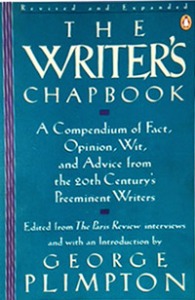Flirting with the world – lunch with Robert Dessaix
July 3, 2017 at 1:11 am | Posted in English Language, Leisure, Robert Dessaix | Leave a commentTags: corporate-speak, Don Watson, jargon, Muse restaurant Canberra
Robert Dessaix seems like one of the last people in Australia to be qualified to write a book about leisure. He has written many books, he taught Russian at two universities, and he has been a radio presenter for long-running programs. A glance at his achievements gives the impression of an industrious and productive life, possibly one of unremitting toil.
Recently I went to a lunch at Muse bookshop and restaurant www.muse.com.au with Robert Dessaix and a few other convivial, interesting people. We ate delectable food, drank good wine and listened to Robert Dessaix talk about the life of leisure and how he came to write a book about it. A copy of it, The Pleasures of Leisure (Knopf, 2017), was included in the very reasonable price of the lunch.
Dessaix admitted that leisure was something he ‘never quite got the hang of’, knowing only how to fill vacant time usefully and productively. In the book he tackles aspects of leisure such as loafing, reading, walking, nesting, travelling, taking siestas and meditating. With the notion of loafing in mind, he reflects on his childhood:
‘I’d never nonchalantly arrived at anything at all (although from an early age, by dint of hard work, I could say “nonchalant” in several languages’ (p. 5).
Why do words go out of fashion?
Loafing is not a word you hear much these days. It produced in me connotations of disapproval, probably from my mother’s attitude, and loafing was definitely one of her words. The opposite of loafing, in her vocabulary and moral universe, would have been expressed by ‘gumption’, another word we don’t hear much these days. (Why is that?) Continue Reading Flirting with the world – lunch with Robert Dessaix…
A Sense of Style
April 15, 2016 at 4:32 am | Posted in English Language, Winston Churchill, Writing | 3 CommentsTags: Jill Margo, plain English style, Stephen Fry, Steven Pinker, The Writer's Chapbook, Truman Capote
 Style is ‘the mirror of an artist’s sensibility’. That was what Truman Capote thought. I think style is what comes naturally because it’s an expression of who you are, a projection of your personality. Edith Wharton wrote about the ‘unassailable serenity’ of being at home in ourselves, just as the French talk about being ‘happy in one’s skin’ and when we express this self acceptance with clarity, that is our style.
Style is ‘the mirror of an artist’s sensibility’. That was what Truman Capote thought. I think style is what comes naturally because it’s an expression of who you are, a projection of your personality. Edith Wharton wrote about the ‘unassailable serenity’ of being at home in ourselves, just as the French talk about being ‘happy in one’s skin’ and when we express this self acceptance with clarity, that is our style.
I heard a young Police Officer say on TV: ‘Oh yes, we got a massive haul of … I mean, a significant amount of cocaine …’ He started off in his own voice, with his own style. This came across instantly with all his enthusiasm of being proud of a job well done, along with his instinctive expression of an exciting narrative. But then he corrected himself to talk in the way they must be trained to talk to the media, which was dry and boring.
Continue Reading A Sense of Style…
Coining words – from assassination to jobstopper
March 24, 2016 at 9:35 pm | Posted in English Language, Shakespeare, Shakespeare's neologisms | Leave a commentTags: children's reading, Doris Lessing, Jobstopper, muffin-top
 Shakespeare introduced 1,700 words and many phrases we still use today. He coined assassination, for instance, from the 8th century Arabic assassin.
Shakespeare introduced 1,700 words and many phrases we still use today. He coined assassination, for instance, from the 8th century Arabic assassin.
Even-handed, far-off, hot-blooded, schooldays, well-respected, are Shakespeare’s too, as are useful, moonbeams, subcontinent. [Without him we wouldn’t have the phrases] laughing yourself into stitches, setting your teeth on edge, not sleeping a wink, being cruel to be kind, and playing fast and loose.
In my English Honours degree we studied all the plays and many sonnets but that was a long time ago and it’s great to read a neat summary of some of Shakespeare’s achievements. Ben Crystal reminds us of the above list of words and phrases in his Shakespeare on Toast: Getting a taste for the bard (Icon, 2016). It’s an engaging, funny, accessible little book for a reminder of or an introduction to Shakespeare’s genius with language.
When I was little we had the book Tales from Shakespeare by Charles and Mary Lamb. It was a favourite and in King Lear I remember the picture of Cordelia, appearing to be asleep, wearing what I thought was a beautiful pale green nightie, her blonde plait hanging down her back. The caption said: ‘And Cordelia ended her life in prison.’
At five or six I couldn’t make any sense of the plot from Romeo and Juliet and I asked my older sister, why couldn’t they just agree not to see each other if it was going to cause so much trouble? No matter how she tried to explain romantic love she couldn’t make me understand such irrational behaviour.
Continue Reading Coining words – from assassination to jobstopper…
Blog at WordPress.com.
Entries and comments feeds.
